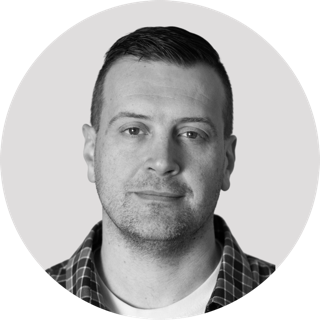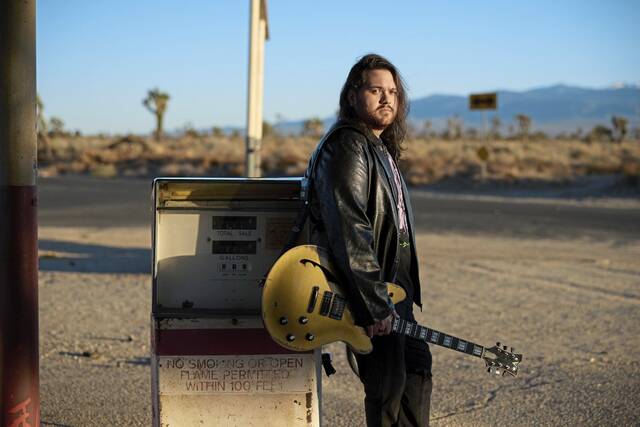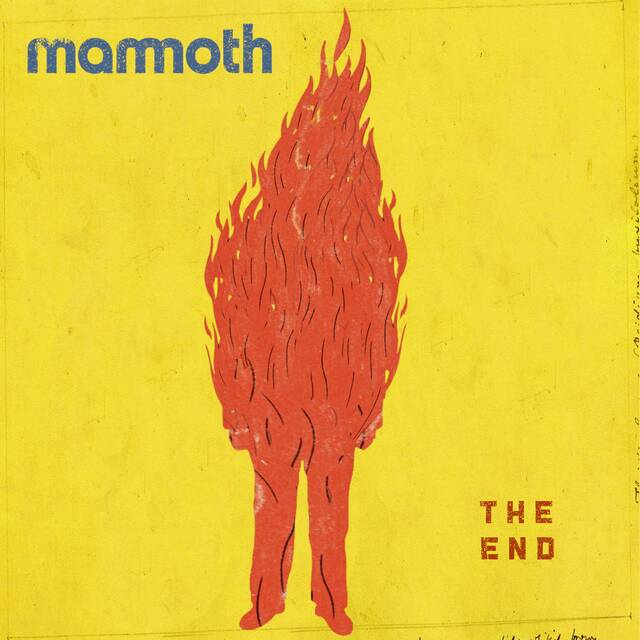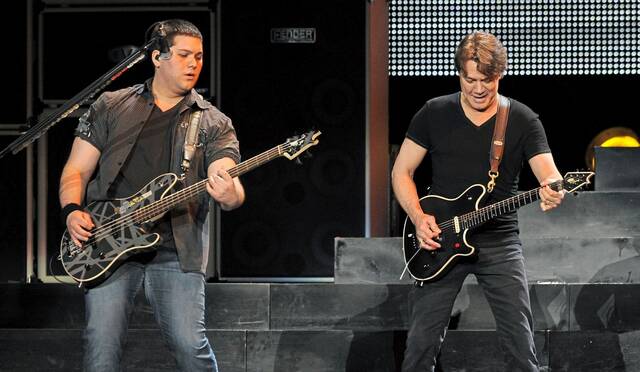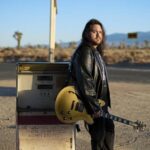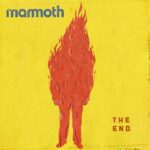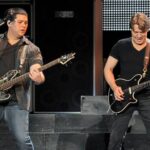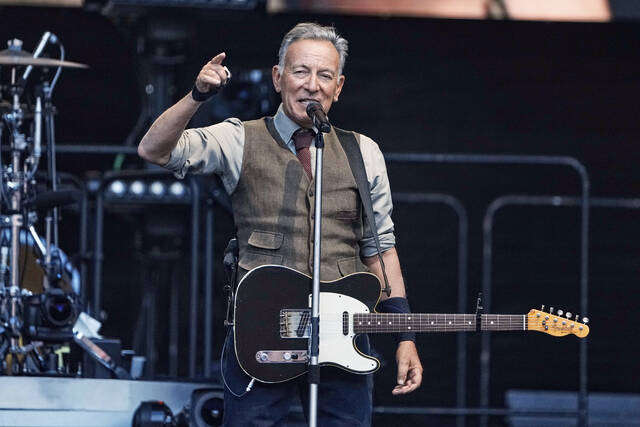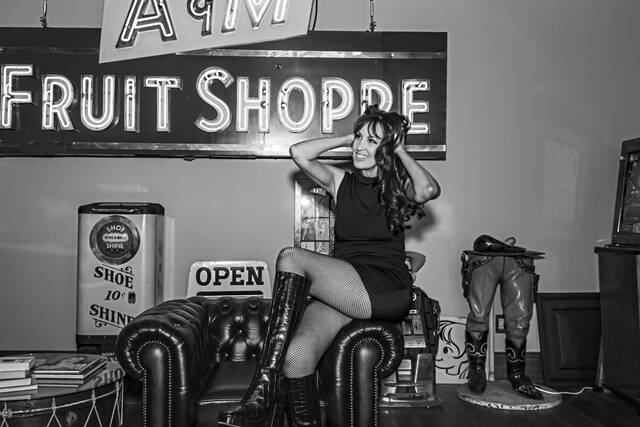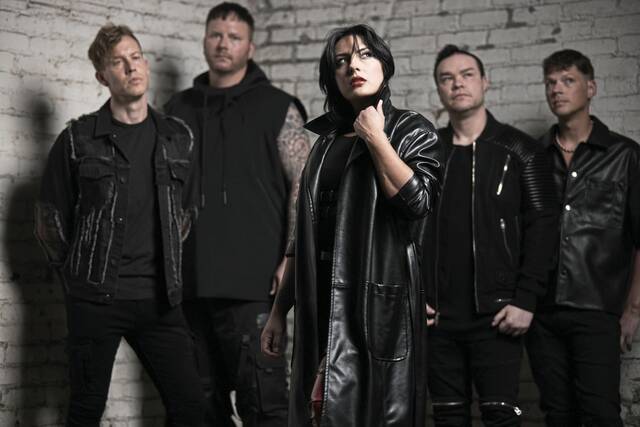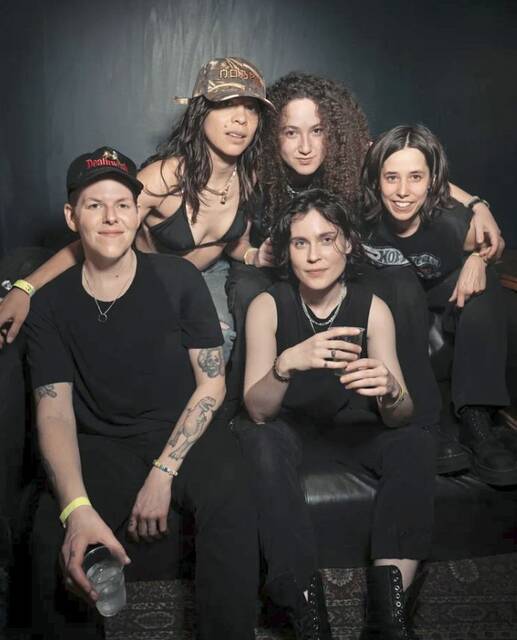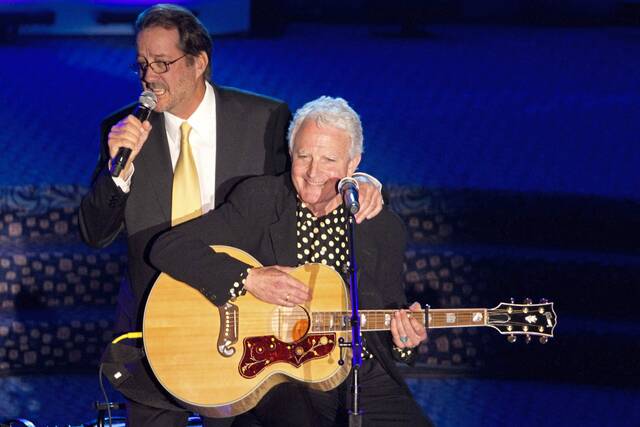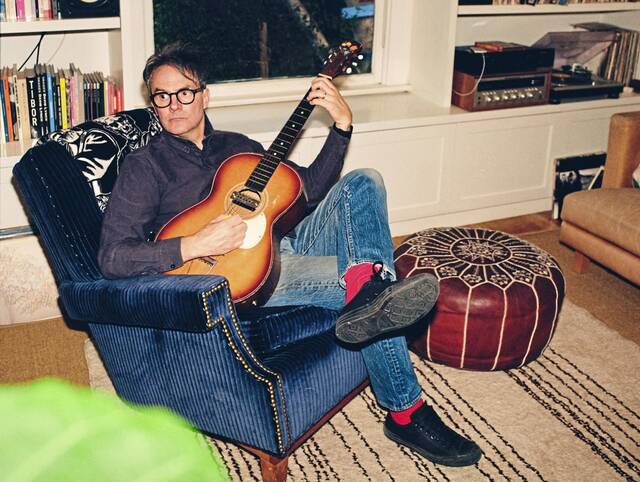Wolfgang Van Halen is continuing his family’s legacy, but he’s intent on forging his own path.
The son of legendary guitarist Eddie Van Halen and actress Valerie Bertinelli, Wolfgang first took over on bass for Van Halen in 2006 as a 16-year-old, sticking with the band until his father’s death in 2020.
Since 2021, he’s fronted Mammoth (formerly Mammoth WVH), writing and playing every instrument in the studio, including the third album, “The End,” which comes out Friday. His latest single, “I Really Wanna,” might not be directed at anyone in particular, although there’s been speculation online it’s referencing David Lee Roth.
“The song is more of a realization of, I think it reflects on the confidence that I was talking about with where I am now as my own artist, but I think realizing that no matter what you do, somebody’s probably gonna be upset with you. So you should probably just figure out how to enjoy it and let it roll off your back,” Van Halen told TribLive last week. “I’ve had a lot of people in my life have what I should be doing preordained for me rather than letting me make my own mistakes or make my own decisions. I think I’m proud of the way I’ve handled myself and where I’m going in my own career. I think it’d be one thing if I was playing Van Halen stuff every night, but I would much rather fail on my own than succeed by shacking up in the legacy of my father.”
As he’s shown — like at the Taylor Hawkins tribute concert in 2022 in Los Angeles where he shredded on “Panama” and “Hot For Teacher,” for instance — Van Halen can most assuredly pull off the guitar fireworks his father became famous for.
“It’s been fun to be able to be like, ‘Hey, look, I can do it, but I choose not to,’ and I think that’s a bigger statement in the end,” he said.
Mammoth’s The End tour hits the Roxian Theatre in McKees Rocks on Nov. 15, with special guest Myles Kennedy.
In a phone call from Los Angeles, Van Halen spoke with TribLive about finding his voice, his evolution, song construction and more. Find a transcript of the conversation, edited for clarity and length, below.
How many of those new songs are you hoping to break out on the tour?
I think us being a young rock band, I still think we have a lot to prove live, so I would love to play as much as we could of the new material. I’m very proud of it, and I think people have really enjoyed “The End” and “The Spell” so far live when we’ve played them, so I’m excited to share the rest of the material.
With that new album, “The End,” what should people know about it?
If there’s nothing that you know about us or the band, I think there’s a little something for everybody, if you enjoy rock or melody or anything. It’s just my own artistic statement and just trying to find my own way through who I am as my own artist. I think I’ve finally reached a comfortable and confident place in comparison to the last few.
What does “The End” as an album title mean to you?
I think it’s pretty layered in its meaning. I think lyrically I found a through line through all the things I was writing about, different takes on what the end could mean, positive or negative, but then at the same time, it’s almost meta in a reference to the state of the band. There’s been an evolution in the songwriting in comparison to the last few in the process. We have the copyright for Mammoth now, so there’s no WVH. It’s our first titled record. It’s not Mammoth III. So I think it’s not only a reflection of the material itself but also on the current state of where the band is and where we’re going. “The End” can be also a new beginning at the same time, so I think it’s the mark of a new era or new direction for us.
Where did you see the most evolution, the most growth, in this new album compared to your previous ones?
I think the pre-production process allowed for that experimentation because normally I would just do stuff on my laptop and demos just to make sure the stuff worked together, but this time we were in the studio early enough where we were able to do the demoing process there. On top of the confidence of this being the third time around, I think the process itself being so immediately gratifying and you could tell if an idea was working well or not pretty quickly, that we were more willing to throw stuff at the wall and see if it worked. I think that’s where songs like “One of a Kind,” “I Really Wanna” and even the title track came about and wouldn’t exist the way they do now, on a previous record.
This album and the last two were recorded at your father’s 5150 Studios, so could you see yourself ever recording anywhere else?
I don’t know. I think if I had to. But I think it’s home to me so it’s a very comfortable place. I think it’s important to feel comfortable when you’re in a creatively vulnerable mindset. So I think being in a place where I feel like it’s my purpose not only to be recording and making music, but also feeling at home, is a feeling I don’t take for granted. So I think it’s certainly where I’d want to keep doing it for as long as I can.
When you’re writing, how important is it to sound like “you,” and do you still feel like you’re finding your own voice?
I think I’ve let go of that maybe a bit more this time around, where instead of worrying about what a song might sound like or if it sounds close to this or sounds too much like that, I’ve let the songwriting process lead me to where the songs should end up. Not to sound too pretentious or douchey or whatever, but I think songs more reveal themselves to you as you work on them rather than you trying to shape them too much. I think that’s where sometimes an idea that could be your favorite might not be your favorite when it finally is finished. It’s a process where you’re just slowly chipping away at the marble, and it eventually shows itself to you. I think off of that, I’m never really making any intentional artistic choices on a song. I think they just show up. The song “Happy” has a very grungy, sort of Nirvana, Alice In Chains, Failure sort of vibe, and that didn’t really show up until it started to show up, and then you start chasing that rather than intentionally from the start going, I want to make a grunge song.
So in the past, have you played or written a song where you’re like, oh, this sounds like Rush and abandoned it? Was that the case, or now you’re going with where it takes you?
I think maybe I was more reticent in that respect to be worried about if an influence was showing too much or something, but I think as long as I’m not unintentionally directly copying something, I think at the end of the day anything’s fair game.
Since you played all the instruments on this album, what’s the least comfortable of the instruments, if any?
I think when it comes to being a singer is where I’m still feeling I’m growing and figuring out how to be. It’s not a very comfortable thing for me. I enjoy the process and everything, but I think lyrically you have to go somewhere mentally that you might not like to be in in order to pull something you feel that’s artistically meaningful out of you. So I think that’s still something I maybe don’t exactly look forward to, but also look forward to seeing the results at the end of it.
I imagine there’s probably been a lot of progress since you started this a couple years ago in terms of your comfort as a singer then.
Sure, absolutely. I think that’s the live performance aspect. I think we’re almost up to 350 shows in the past four years. I think that certainly is reflected in the material and done a lot for the confidence of where I am today as my own artist, for sure. Just the more you do something, hopefully the better, or at least more comfortable, you get with it.
In the “I Really Wanna” video, I couldn’t help but notice the finger tapping with the middle finger, so was that just for the video or was it recorded that way too?
I don’t think I recorded it that way, but I think now as we play that live, I’m gonna have to do it that way, so I should probably practice it that way. (laughs)
There were a couple of songs on the album that the opening parts just really grab you, like the finger tapping on “The End.” The other one was “Selfish,” where they just go hard from the beginning. Any thoughts on those two songs and having strong openings?
Yeah, I think I really enjoy sort of crafting, each song is its own thing that takes you on its own journey, so it’s really fun to experiment. I think “Selfish” is a good example. I think it might be one of our heaviest songs, or at least more aggressive, certainly in tone and execution, songs we’ve had yet. So that’s one I’m certainly excited to play live. I’m excited to play all of it. But yeah, I think it’s funny, like I mentioned that process being throwing stuff at the wall. That tapping idea I had for “The End” was pretty old in respect to the idea, but I just never felt like it was a Mammoth thing or maybe it was too much, until I was like, oh, why don’t we just see, what if we use that tapping idea and we open it with it and write a song around it. So through that process, it just evolved into that after we got that first sort of “The Spirit of Radio”-esque kind of stab at the top, it really all came together relatively quickly.
Related
• Q&A: Biohazard's Billy Graziadei on reunion of classic lineup ahead of tour opener• Q&A: Judas Priest guitarist Richie Faulkner talks 'Invincible Shield' album, tour
• 2025 Pittsburgh area concert calendar
You mentioned earlier about the band name, losing the WVH. Does that feel good to have that off there?
Absolutely, it’s what we’ve wanted from the beginning. It’s a bit like how Ghost was Ghost BC for their first year or two or whatever. So I just like to say we’ve finally shed our BC so it’s nice.
We had the loss of Ace Frehley on Oct. 16, so I was wondering if he had made an impact on you as a guitarist?
I think what’s so unique about him is that, as time moves on and all these legends are leaving us, I think he’s one of those few that regardless of whether or not you were inspired by him directly, indirectly you were by other people who were inspired by him. So I think he’s one of those, a caliber of that respect, where it almost didn’t matter if you weren’t directly inspired because you were inspired by somebody that was inspired by him. So yeah, it’s a huge loss.
Also speaking of legends that we’ve lost, you were slated originally to play the Ozzy Osbourne farewell show, so do you have any regrets about missing that in hindsight?
Oh, of course. That wasn’t really a choice. It was a scheduling conflict. I had to be on a different tour, and the rehearsals changed, and I wasn’t about to jump into something like that without properly rehearsing. Also at the end of the day, we didn’t have flights or a hotel so I know Birmingham at that point was completely locked up, so there was really no way to do it. But I was very honored to at least have been able to do the Hall of Fame induction for Ozzy and see him then, so in a way that was my ability to say goodbye to him. I’m really happy I at least had that chance outside of the Back to the Beginning show.

